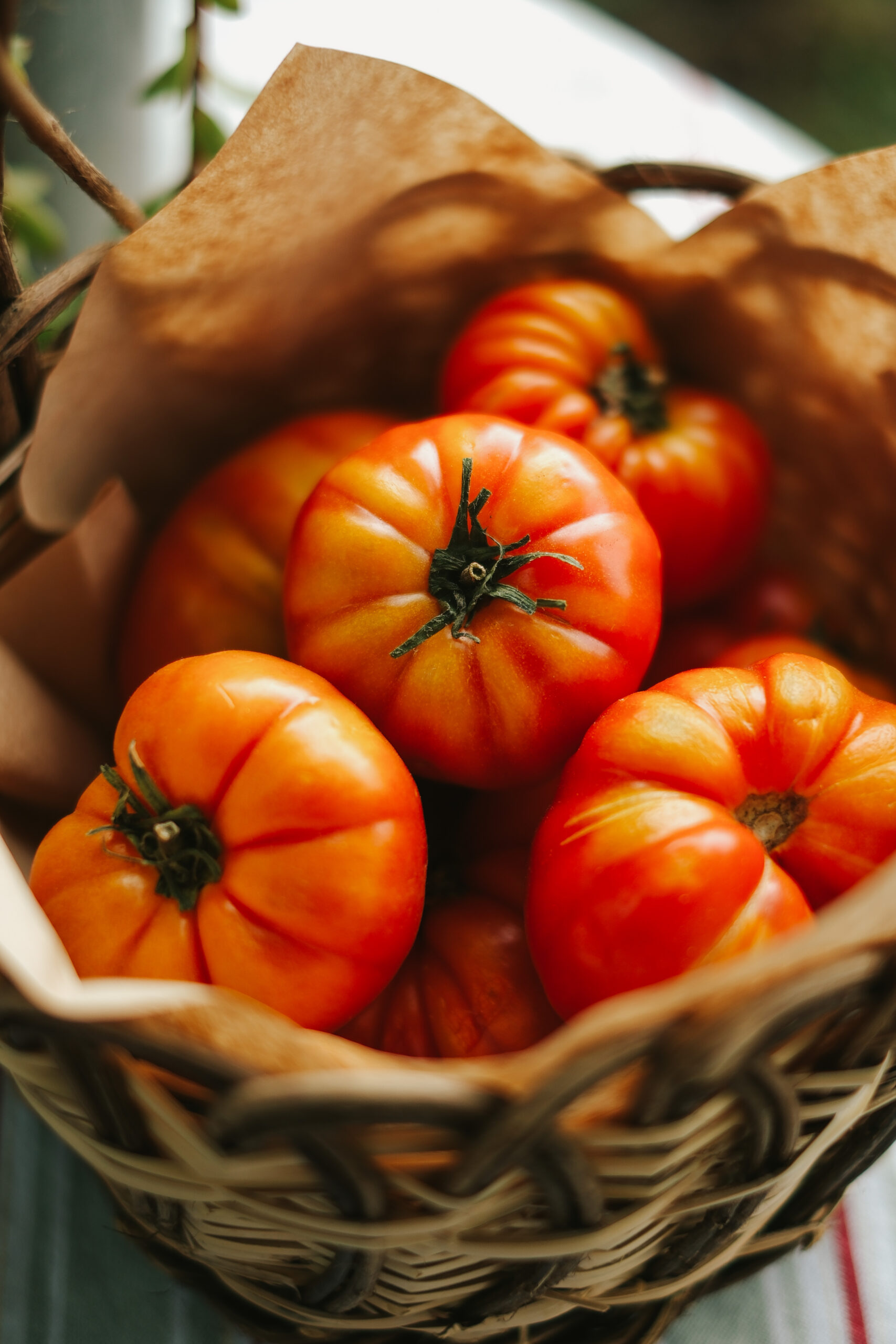In this article, we will explore the topic of finding the best cookware for your health. Have you ever wondered which type of cookware is the safest? Or are you searching for the best quality cookware that promotes a healthier cooking experience? These are common questions that many consumers have, and we’re here to provide you with the answers. Whether you’re a passionate home cook or simply looking to make healthier choices in the kitchen, understanding the impact of cookware on your health is essential. So, let’s dive right in and explore the world of cookware options that prioritize your well-being.

This image is property of images.pexels.com.
Non-Toxic Cookware Options
Ceramic Cookware
Ceramic cookware is a popular choice for those looking for non-toxic options. It is made from natural materials such as clay and minerals, which means it does not release harmful chemicals when heated. Ceramic cookware is also known for its even heat distribution, making it great for cooking a variety of dishes. Additionally, it is non-reactive, meaning it does not leach any unwanted flavors into your food. However, it is important to note that ceramic cookware can be prone to chipping and may require careful handling to maintain its longevity.
Stainless Steel Cookware
Stainless steel cookware is a durable and versatile option that is widely used in both home and professional kitchens. It is non-reactive, meaning it does not interact with acidic foods or alter the taste of your meals. Stainless steel is also resistant to corrosion and rust, making it long-lasting and easy to maintain. However, stainless steel cookware can have hotspots, so it is important to choose pots and pans with a thick, layered bottom to ensure even heat distribution. Additionally, stainless steel cookware can be more expensive compared to other options.
Cast Iron Cookware
Cast iron cookware has been used for centuries and is known for its excellent heat retention and even heat distribution. It is a great choice for those looking for non-toxic cookware as it does not release any harmful chemicals when heated. Cast iron cookware also adds a small amount of iron to your food, which can be beneficial for individuals with iron deficiencies. However, cast iron requires regular seasoning to maintain its non-stick properties and prevent rusting. It is also quite heavy, which may not be suitable for everyone.
Glass Cookware
Glass cookware is another non-toxic option that is safe for cooking and storing food. It is made from natural materials, such as borosilicate glass, which is resistant to thermal shock. This means you can safely use glass cookware in the oven, microwave, and refrigerator without worrying about it shattering. Glass cookware is non-reactive and does not leach any unwanted flavors into your food. It is also transparent, allowing you to easily monitor your cooking progress. However, glass cookware can be prone to breaking if not handled with care, and it may not offer the same heat retention as other materials.
Avoiding Harmful Chemicals in Cookware
Teflon and Non-Stick Coatings
Teflon and other non-stick coatings have gained popularity due to their ability to prevent food from sticking to the cookware. However, these coatings can release harmful chemicals, such as perfluorooctanoic acid (PFOA), when heated to high temperatures. PFOA has been linked to various health concerns, including kidney and liver damage. To avoid these harmful chemicals, it is recommended to opt for cookware without non-stick coatings or choose brands that use ceramic or diamond-infused non-stick coatings, which are considered safer alternatives.
Aluminum Cookware
Aluminum cookware is lightweight and conducts heat well, making it a popular choice for many cooks. However, prolonged exposure to acidic foods or high temperatures can cause the metal to leach into your food. High levels of aluminum in the body have been associated with health issues, including neurological disorders. If you prefer using aluminum cookware, make sure it is anodized or coated with a non-reactive material to prevent direct contact between the food and the aluminum surface.
Copper Cookware
Copper cookware is prized for its excellent heat conductivity, allowing for precise temperature control. However, similar to aluminum, copper can leach into your food and lead to copper toxicity if consumed in excess. To avoid this, look for copper cookware that is lined with stainless steel or another non-reactive material. This provides a barrier between the food and the copper surface, ensuring safe cooking without the risk of metal absorption.
Plastic Cookware
Plastic cookware, especially those made from low-quality materials, can release harmful chemicals when exposed to high heat. Bisphenol A (BPA) and phthalates are common chemicals found in plastic cookware that can seep into your food and have been linked to hormonal disruptions and other health issues. It is best to avoid using plastic cookware for cooking, especially in high-temperature settings. Instead, opt for non-toxic alternatives such as glass, stainless steel, or ceramic cookware.
Cookware Materials to Consider
Titanium Cookware
Titanium cookware is known for its durability, lightweight nature, and exceptional heat conductivity. It is resistant to corrosion, does not react with acidic or alkaline foods, and does not release any harmful chemicals when heated. Titanium cookware is a great option for those looking for non-toxic and long-lasting cookware. However, it can be more expensive compared to other materials, so it may not be suitable for everyone’s budget.
Enamel-Coated Cookware
Enamel-coated cookware consists of a metal core coated with a layer of enamel, usually made from glass particles. This coating provides a non-reactive surface, preventing any interaction between the food and the metal. Enamel-coated cookware is easy to clean, comes in a variety of colors, and is suitable for both stovetop and oven use. However, it is important to handle enamel-coated cookware with care to avoid chipping the enamel layer.
Clay Cookware
Clay cookware has been used for centuries in various cuisines worldwide. It is made from natural clay that is fired at high temperatures to create a porous and heat-resistant material. Clay cookware heats slowly and evenly, producing flavorsome and moist dishes. It is non-reactive and does not release any harmful chemicals when used correctly. Clay cookware requires special care, including pre-soaking, low heat cooking, and gradual temperature changes to prevent cracking. It may not be suitable for high-temperature cooking methods such as frying.
Stone Cookware
Stone cookware, such as granite or marble, is known for its durability and excellent heat retention. It is safe to use, non-toxic, and does not react with acidic or alkaline foods. Stone cookware distributes heat evenly, allowing for consistent cooking results. However, stone cookware can be quite heavy, making it less suitable for individuals with mobility limitations. It also requires careful handling to avoid chipping or breakage.
Best Cookware for Specific Health Concerns
Cookware for Individuals with Allergies
Individuals with allergies should avoid cookware made from materials they are allergic to, such as nickel or certain types of plastic. Stainless steel cookware is generally a safe option for those with allergies, as it is non-reactive and does not release any allergens into the food.
Cookware for People with Asthma
People with asthma should opt for cookware that does not release any fumes or particles that could trigger asthma symptoms. Non-toxic options such as stainless steel, ceramic, or glass cookware are recommended for individuals with asthma.
Cookware for Pregnant Women
Pregnant women should avoid cookware that may leach harmful chemicals into their food. Non-toxic options such as ceramic, stainless steel, or glass cookware are considered safe for use during pregnancy.
Cookware for Individuals with Diabetes
Individuals with diabetes may benefit from cookware that allows for precise temperature control and even heat distribution. Stainless steel or ceramic cookware can be good options for individuals with diabetes.

This image is property of images.pexels.com.
Cookware Maintenance and Safety
Proper Cleaning and Avoiding Scratches
To maintain the quality and longevity of your cookware, it is important to follow proper cleaning techniques and avoid using abrasive materials that can cause scratches. Most cookware can be safely cleaned with warm soapy water and a non-abrasive sponge. For stubborn stains or residue, you can use a mixture of baking soda and water or specialized cookware cleaners. Avoid using metal utensils that can scratch the surface of non-stick or coated cookware.
Safe Temperature Limits
Each type of cookware has different temperature limits, and it is important to follow the manufacturer’s instructions to prevent damage or accidents. For example, non-stick cookware should not be used at high temperatures, as it can release harmful fumes. Always use cookware within its safe temperature limits and avoid overheating.
Avoiding Overheating
Overheating cookware can not only damage the cookware itself but also pose health risks. When cookware reaches extremely high temperatures, it can release toxic fumes or break down the non-stick coatings. Always monitor your cooking process, use appropriate heat settings, and avoid leaving cookware unattended.
Pros and Cons of Different Cookware Types
Ceramic Cookware
Pros:
- Non-toxic and chemical-free
- Even heat distribution
- Non-reactive
- Easy to clean
Cons:
- Can be prone to chipping
- Requires careful handling
Stainless Steel Cookware
Pros:
- Durable and long-lasting
- Non-reactive
- Easy to clean
- Resistant to rust and corrosion
Cons:
- May have hotspots without a layered bottom
- More expensive compared to other options
Cast Iron Cookware
Pros:
- Excellent heat retention and even heat distribution
- Adds a small amount of iron to your food
- Non-toxic and chemical-free
- Long-lasting with proper seasoning
Cons:
- Requires regular seasoning and maintenance
- Heavy and may not be suitable for everyone
Glass Cookware
Pros:
- Non-toxic and chemical-free
- Transparent for easy monitoring
- Safe for use in various temperatures
Cons:
- Prone to breaking if mishandled
- May not offer the same heat retention as other materials
Teflon and Non-Stick Coatings
Pros:
- Prevents food from sticking
- Easy to clean
Cons:
- Can release harmful chemicals when heated to high temperatures
- Non-stick coatings can wear off over time
Aluminum Cookware
Pros:
- Lightweight and conducts heat well
- Affordable option
Cons:
- Can leach into food, especially with acidic or high-temperature cooking
- May react with certain foods, altering their taste
Copper Cookware
Pros:
- Excellent heat conductivity
- Precise temperature control
Cons:
- Can leach into food without a non-reactive lining
- May require regular polishing to maintain its appearance
Plastic Cookware
Pros:
- Lightweight and affordable
- Comes in a variety of colors and designs
Cons:
- Can release harmful chemicals when exposed to high heat
- Not suitable for high-temperature cooking
Titanium Cookware
Pros:
- Lightweight and durable
- Excellent heat conductivity
- Non-toxic and chemical-free
Cons:
- More expensive compared to other materials
Enamel-Coated Cookware
Pros:
- Non-reactive surface
- Easy to clean
- Suitable for stovetop and oven use
Cons:
- Requires careful handling to avoid chipping

This image is property of images.pexels.com.
Budget-Friendly Cookware Options
Affordable Ceramic Cookware Brands
When looking for affordable ceramic cookware, consider brands such as GreenLife, Caraway, or Vremi. These brands offer non-toxic ceramic cookware at more budget-friendly prices.
Cost-Effective Stainless Steel Cookware Sets
Brands like Cuisinart, Cooks Standard, and Farberware offer cost-effective stainless steel cookware sets that provide good quality and durability without breaking the bank.
Affordable and Durable Cast Iron Cookware
Lodge is a well-known brand that offers affordable and durable cast iron cookware. Their products are widely available and come in a range of sizes and styles.
Budget-Friendly Glass Cookware Options
Pyrex and Anchor Hocking are popular brands that offer affordable glass cookware options. These brands provide various baking dishes, casserole dishes, and storage containers made from high-quality borosilicate glass.
Eco-Friendly Cookware
Sustainable Materials
Choosing cookware made from sustainable materials can help reduce your environmental impact. Look for options made from renewable resources such as bamboo, recycled stainless steel, or responsibly sourced wood.
Recyclable and Biodegradable Options
Some cookware brands offer recyclable and biodegradable options, focusing on reducing waste and promoting eco-friendly practices. These products are often made from materials such as bamboo, coconut fibers, or plant-based plastics.
Comparing Brands and Models
Researching Reliable Cookware Brands
Before purchasing cookware, it is essential to research reliable brands known for their quality and safety standards. Look for brands that prioritize non-toxic materials, provide clear information about their products, and have positive customer reviews.
Reading Customer Reviews
Reading customer reviews can provide valuable insights into the performance, durability, and safety of different cookware models. Pay attention to reviews from verified buyers and consider both positive and negative feedback to make an informed decision.
Comparing Features and Prices
When comparing cookware options, consider the features that are important to you, such as non-toxic materials, heat conductivity, ease of cleaning, and durability. Also, compare prices to ensure you are getting the best value for your money.
Conclusion
When it comes to choosing cookware for your kitchen, prioritizing non-toxic options is crucial for your health and well-being. Ceramic, stainless steel, cast iron, and glass cookware are great choices that offer non-reactive and chemical-free cooking surfaces. However, always consider your specific needs and preferences, as well as any health concerns you may have. Maintain your cookware properly, follow safe cooking practices, and research reputable brands to ensure you have the best cookware for your needs, budget, and the environment.

